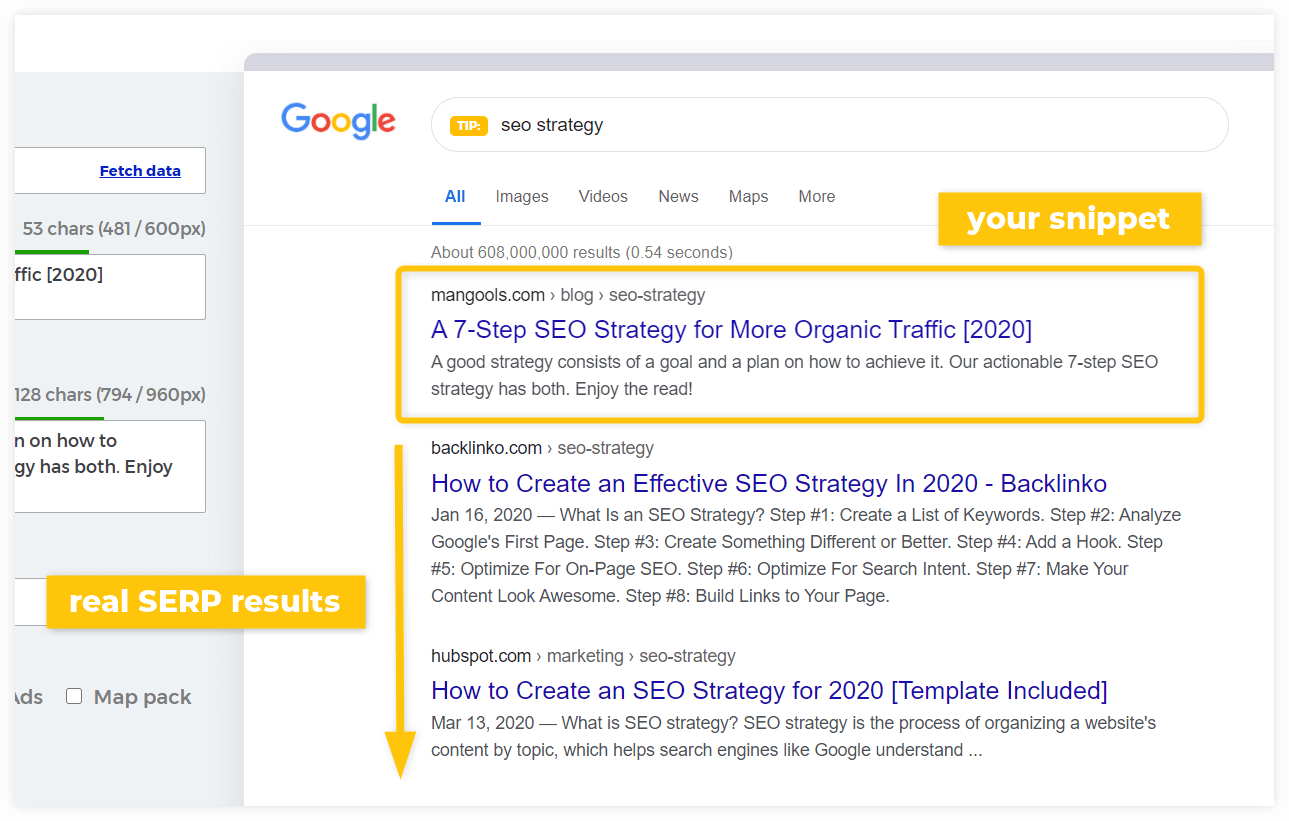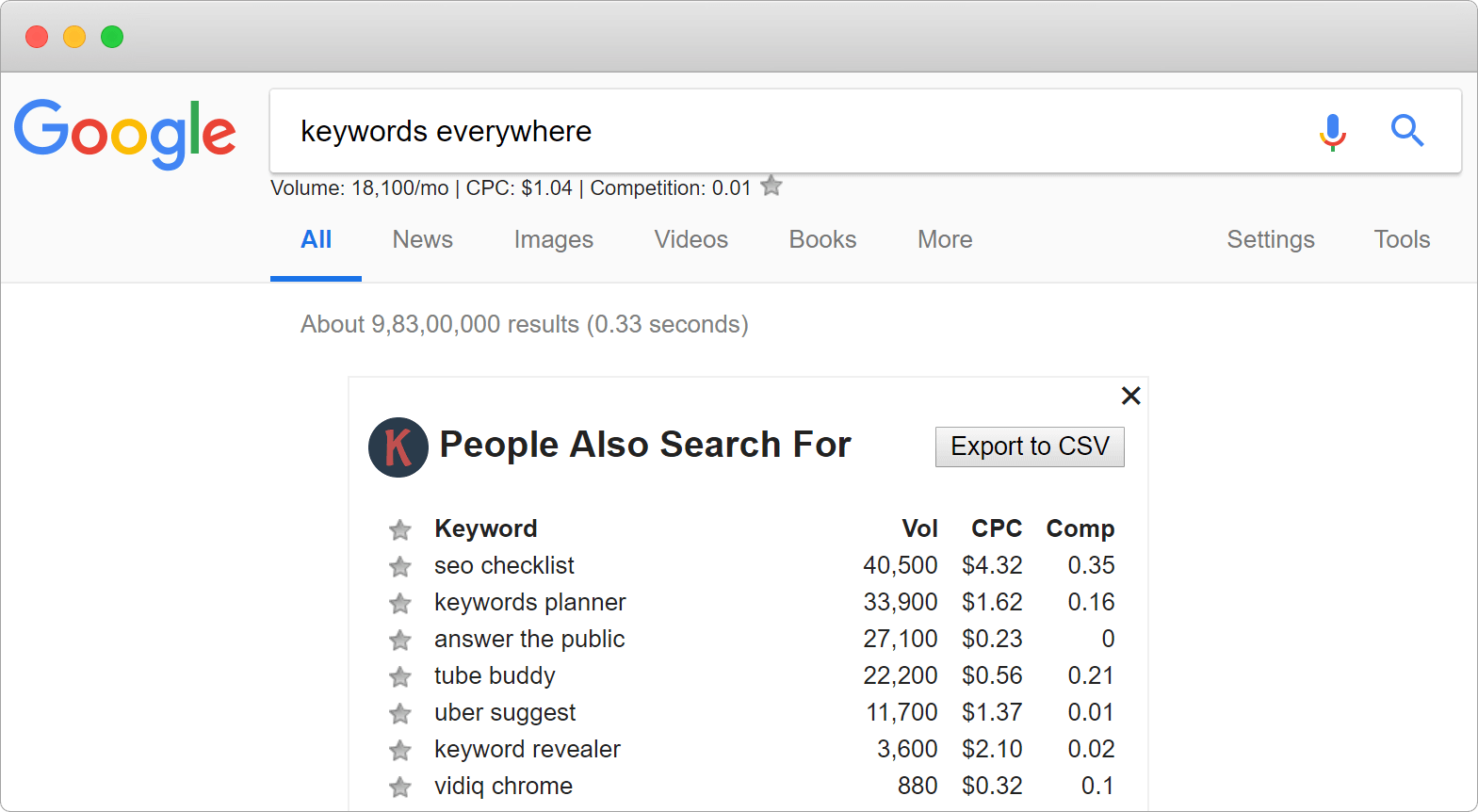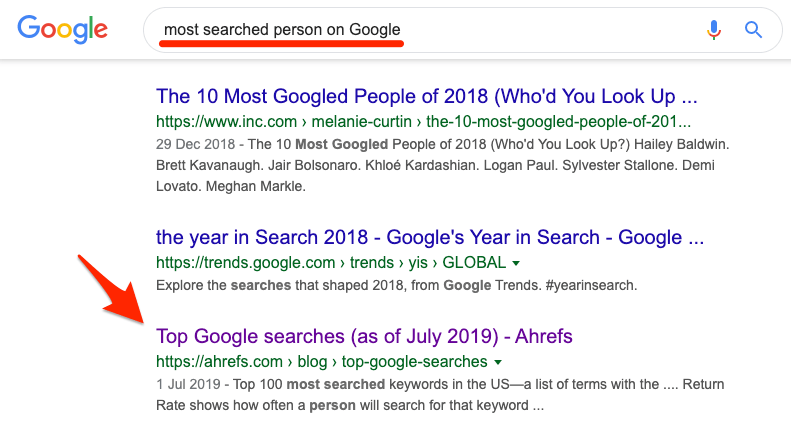
The problem is that most of the people searching for this keyword aren’t ready to buy. Looking at the search volume for “robot vacuum,” it seems like a decent keyword to try to rank a product page for.Īfter all, people searching for “robot vacuum” are probably looking to buy one, and you sell them. Imagine that you sell robots vacuums online. Learn more about why search volume isn’t always a good predictor of traffic potential in these two posts. But if we check the current top-ranking pages for each term in Site Explorer, we see that the opposite is true. Judging by their search volumes, you’d guess that the top-ranking page for “SEO tips” would get the most organic traffic. Just type in your keyword, choose a country, and you’ll see country-specific and global volumes:Īlthough search volume is a good predictor of traffic potential in general, it’s not perfect. You can check the search volume for almost any keyword in Ahrefs’ Keywords Explorer. We’d probably get more traffic from ranking #1 for that keyword than the other one. 350 for “image seo.”Īs it would make sense for us to show up in Google for both of those keywords, we should probably prioritize the first one. You need to find keywords that bear some relevance to what your business does, then judge them relatively.įor example, there are 2,200 searches for “SEO tips” every month vs. It might bring lots of visitors, but none of them are likely to buy what we sell.
HOW TO SEARCH A PAGE FOR KEYWORDS SOFTWARE
There’s no point ranking for that first keyword if you sell SEO software like us. For example, there are an estimated 35,000 monthly searches for “how to post on instagram.” But only 1,200 for “how to get backlinks.”ĭoes that mean it’s better to rank for “how to post on instagram” than “how to get backlinks?” Not always. Let’s look at a few keyword metrics and attributes to help you choose the best ones. For that reason, it’s important to choose your battles wisely. Nobody can rank for every keyword, and nobody can bid on every keyword.

Given that we sell SEO tools, all of these keywords send potential customers our way and contribute to our bottom line. We rank #1 for keywords like “SEO audit”: If Google deems your page the “best” result for the right terms, you’ll get a consistent stream of ‘free’ visits to your website.įor example, the Ahrefs blog gets an estimated 383,000 organic visits from Google every month. And Google’s job is to rank the best, most relevant results for every search query. SEO is the process of optimizing your web pages to rank in Google’s organic results. You can tell paid results apart from organic (non-paid) results because they’re marked as ads. Every time someone clicks that ad and lands on your website, Google charges you money. Google then displays your ad in the search results. Google has a platform where you can choose keywords to bid on. This is known as PPC (Pay Per Click) advertising. For example, if you sell email marketing software, you could bid on that term and appear at the top of Google’s search results when people search for it.

PPC is where you pay Google to show your web page in the results for specific keywords.

Showing up at the top of Google for a relevant keyword might send lots of traffic your way, but how do you do that?


 0 kommentar(er)
0 kommentar(er)
